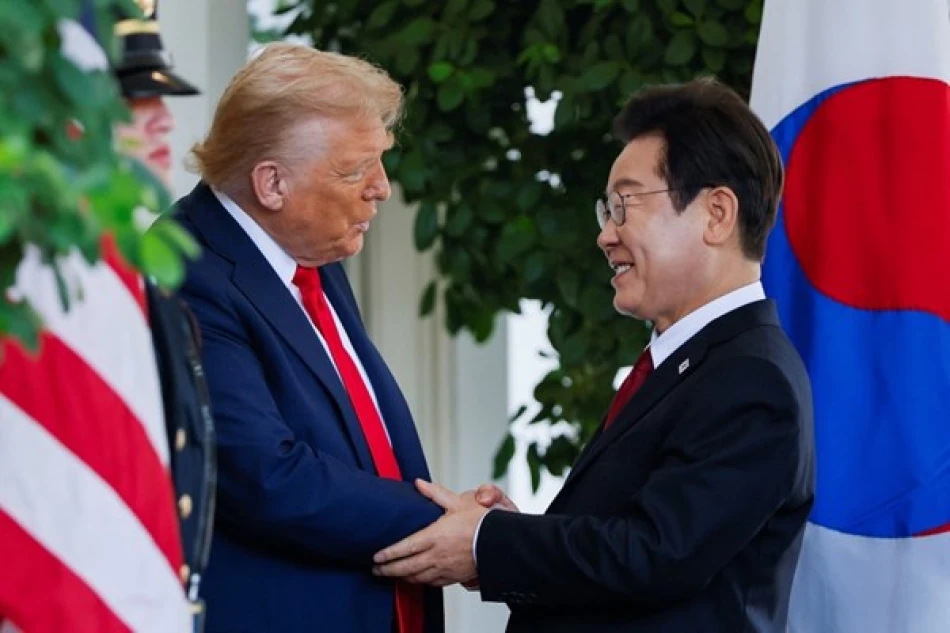
South Korea and the US Sign 11 MOUs for Cooperation in Key Industrial Sectors
South Korea and US Forge Strategic Industrial Alliance with 11 New Partnership Deals
South Korea and the United States have signed 11 memorandums of understanding covering critical industrial sectors including shipbuilding, nuclear energy, aviation, liquefied natural gas, and essential minerals. The agreements, announced following the first summit between South Korean President Lee Jae-myung and US President Donald Trump, signal a deepening of economic ties between two key allies as global supply chains face increasing geopolitical pressures.
Strategic Timing Amid Global Industrial Realignment
The timing of these agreements reflects both countries' urgent need to secure supply chains in strategically important sectors. The deals were finalized during a business roundtable in Washington on Monday, immediately following the presidential summit, underscoring the high-level political backing behind this industrial cooperation.
South Korean Industry Minister Kim Jong-kwan emphasized that the Korean government will provide "all necessary institutional support to revitalize industrial cooperation between Korea and the United States," promising to create extensive business opportunities for companies in both nations.
Critical Sectors in Focus
Nuclear Energy and Advanced Manufacturing
The nuclear energy component is particularly significant as both countries seek to expand clean energy infrastructure while reducing dependence on Chinese supply chains. South Korea's advanced nuclear technology, combined with US market access and regulatory frameworks, could create a formidable partnership in the global nuclear renaissance.
Shipbuilding and Maritime Security
The shipbuilding agreement comes at a time when maritime security concerns are escalating globally. South Korea's world-leading shipbuilding capabilities, particularly in advanced vessel construction, align with US strategic needs for naval and commercial maritime strength.
Market Implications and Investment Opportunities
For investors, these agreements represent potential windfalls for companies in both countries operating in the targeted sectors. South Korean industrial giants like Hyundai Heavy Industries, Samsung Heavy Industries, and Korea Electric Power Corporation could see expanded US market access, while American firms gain entry to South Korea's sophisticated manufacturing ecosystem.
The LNG cooperation is especially timely as global energy markets remain volatile following geopolitical disruptions. South Korea's position as one of the world's largest LNG importers, combined with expanding US production capacity, creates natural synergies for long-term energy security.
Broader Geopolitical Context
These agreements mirror similar strategic partnerships the US has forged with other key allies, including the CHIPS Act collaborations and critical mineral partnerships with Australia and Canada. The focus on essential minerals is particularly noteworthy, as both countries seek to reduce dependence on Chinese rare earth supplies crucial for high-tech manufacturing.
Unlike purely trade-focused agreements, these MOUs emphasize technology transfer, joint development, and integrated supply chains—suggesting a more permanent restructuring of industrial relationships rather than temporary trade adjustments.
Implementation Challenges and Opportunities
The success of these partnerships will largely depend on regulatory alignment and the ability to navigate complex international trade rules. However, the high-level political commitment from both administrations provides a strong foundation for overcoming bureaucratic obstacles that have historically slowed such initiatives.
For global markets, this Korea-US industrial alliance represents a significant shift toward regionalized, ally-based supply chains—a trend that could reshape international trade patterns for decades to come.
Most Viewed News

 Layla Al Mansoori
Layla Al Mansoori






